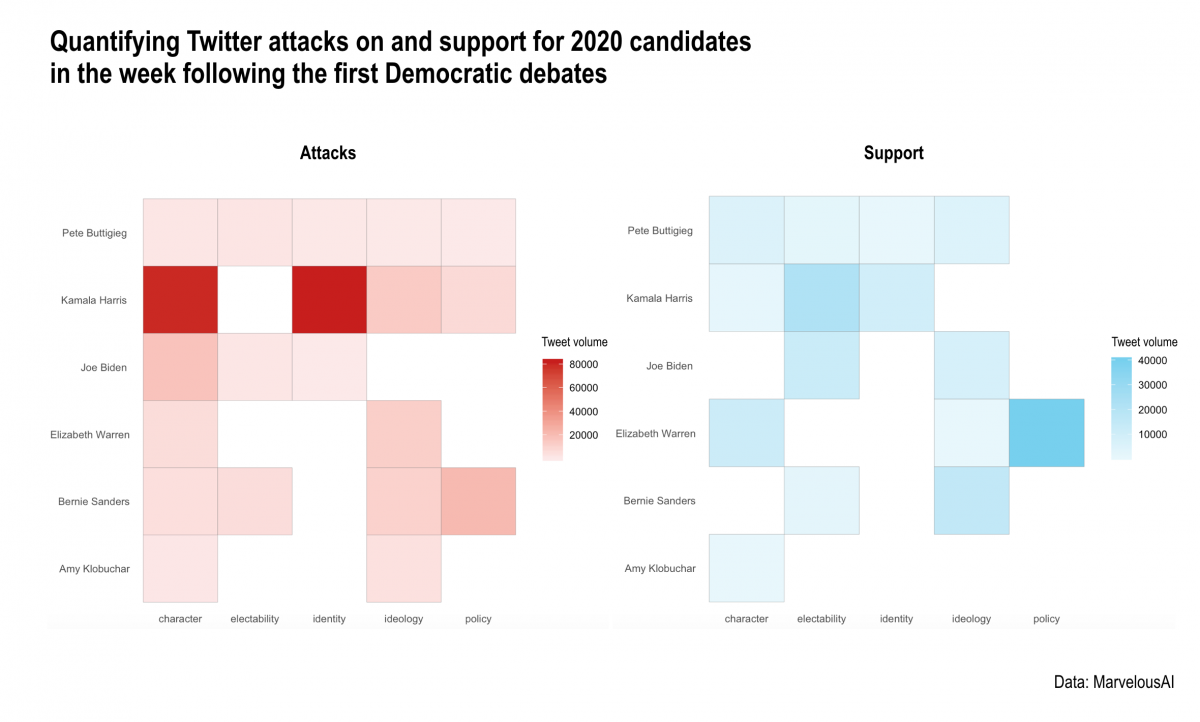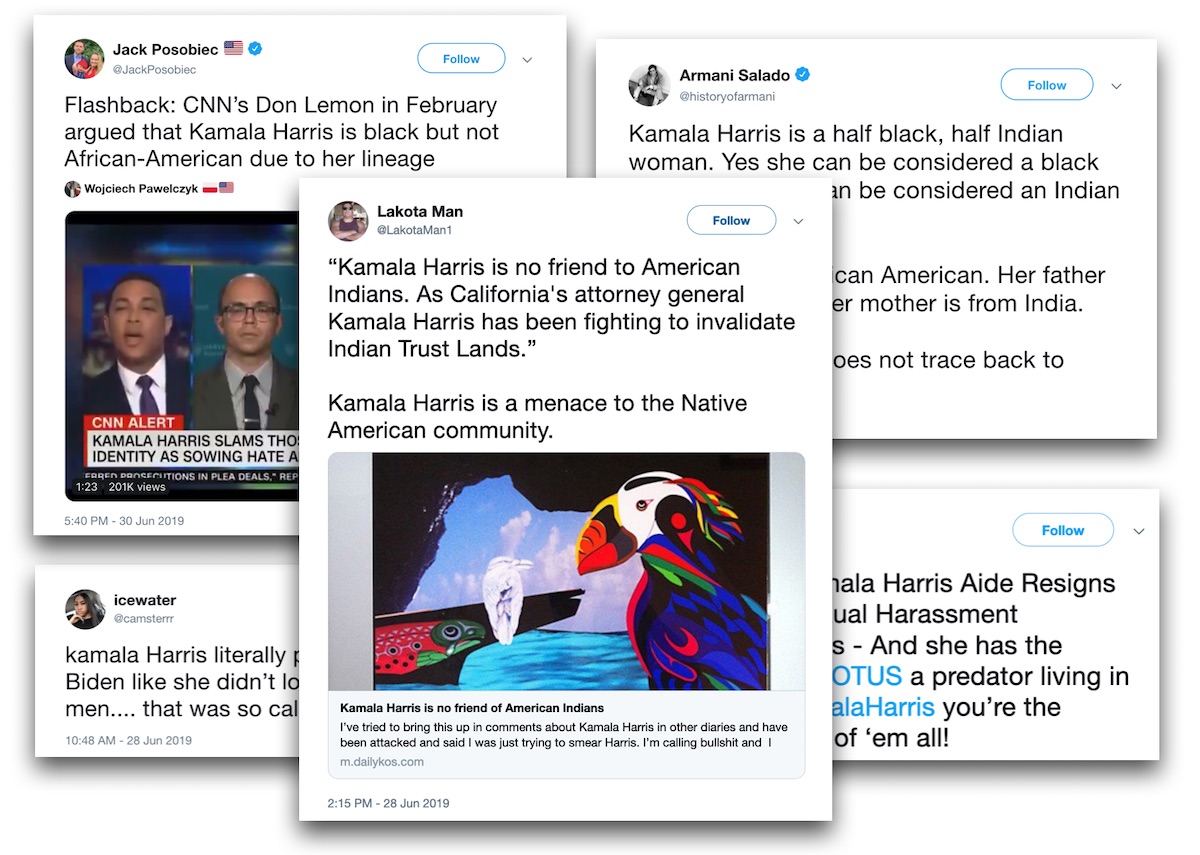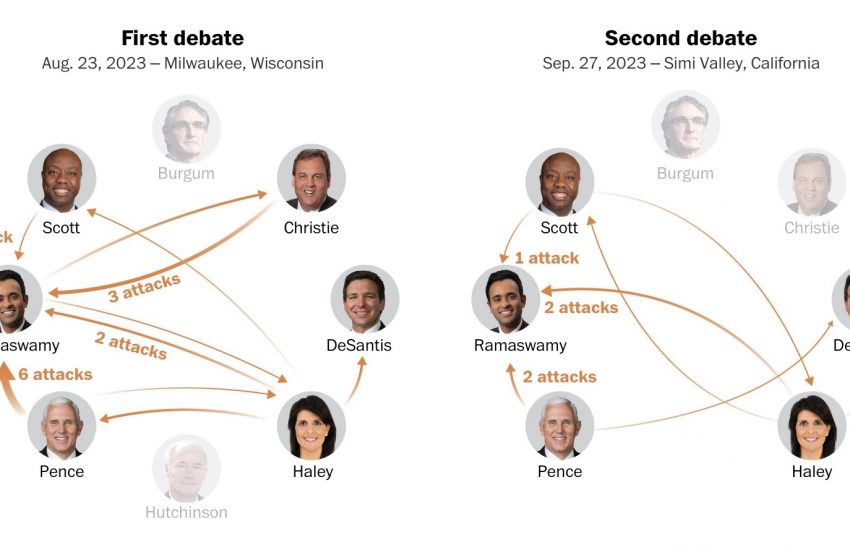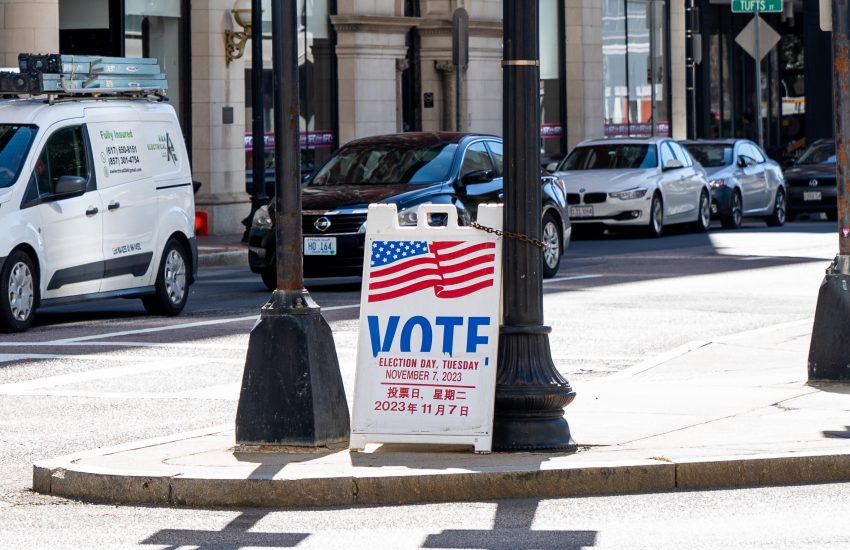Quantifying the Twitter attacks on Kamala Harris during and following the Democratic debates
Media outlets have been quick to crown Kamala Harris the winner of last month’s Democratic debates thanks to a series of stand-out moments that included passionate storytelling and her pummeling of Joe Biden. That prime-time performance has catapulted her to the top of national polls. For a moment, Harris was in second place behind Biden among the sprawling field of 2020 Democratic candidates.
But social media tells a different story. On Twitter, at least, she was far from the winner. Instead, her character and identity have been attacked relentlessly, according to an analysis performed by MarvelousAI, a natural language processing start-up looking at political speech and misinformation on social media.
Olya Gurevich, chief scientist and co-founder of MarvelousAI, classified approximately 200,000 tweets sent during and in the week following the first Democratic debates in an effort to understand the public conversation surrounding the 2020 candidates. The tweets were categorized using manual and computational clustering techniques into either an “attack” or “support” of a candidate’s “identity,” “character,” “policy,” “ideology” or “electibility.”
MarvelousAI classified about 200,000 tweets sent within a week of the debates. Harris, Sanders and Klobuchar saw the most attacks as a proportion of total tweets about them.
Yes, Harris dominated the conversation on Twitter. But that conversation consisted overwhelmingly of attacks.
MarvelousAI showed that almost half of the narratives they classified had to do with Harris and about 85% of those were attacks calling her a liar, fraud, sellout or not authentically black or American. These attacks were loud enough that within days of the debates, her fellow lawmakers caught on and issued statements condemning the noxious messages.

What’s both interesting and troubling, says Gurevich, is how many verified accounts were amplifying these damaging messages. One example, she points out, was Donald Trump Jr. retweeting the “Kamala Harris is not black” narrative, as disinformation researcher Caroline Orr puts it. According to Gurevich’s analysis, that narrative was among the most popular on Twitter during and in the week following the debates.
Elizabeth Warren received three times more support than attacks on Twitter.
Warren is receiving a lot more policy support on Twitter than in the past, Gurevich says. “Warren seems to have gotten out from under the character attacks. When she first started she was drowning. Now she’s full steam ahead and gets the most policy talk of any candidate.” The opposite is happening with Pete Buttigieg, she adds, saying, “Buttigieg, on the other hand, started out as pure gold.” But now, on Twitter and in the polls, he may be starting to wane.
MarvelousAI intends to continue collecting and classifying narratives about the 2020 race and the Democratic debates. Gurevich warns that though people need to be careful about extrapolating from Twitter, this kind of analysis is useful in studying the kinds of attacks being tested by the political opposition on Twitter.
“Twitter now is an excellent way to figure out which lines of attack are being deployed about a candidate,” she says, maintaining that it shouldn’t all have to be negative. “My hope is that you can also try out lines of support in the same way.”





